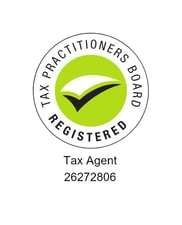Your business is in safe hands.
Understanding Division 7A: Tax Implications for Private Companies and Shareholders
1/27/20255 min read


What is Division 7A?
Division 7A is a crucial aspect of the Australian tax system aimed at regulating the treatment of payments, loans, and other benefits provided by private companies to their shareholders or associates. Established under the Income Tax Assessment Act 1997, Division 7A seeks to prevent private companies from distributing profits to their shareholders in a manner that avoids the payment of the appropriate income tax. In essence, it ensures that any financial benefit extended to a shareholder is treated as income, thereby subjecting it to the applicable tax obligations.
Under Division 7A, a private company must regard any payments made to its shareholders as deemed dividends unless those payments fall within a specific set of exemptions. This provision applies not only to direct monetary payments but also encompasses loans and certain types of benefits, reinforcing its role in tax compliance for private companies. Notably, the implications of Division 7A extend to instances where a company's profits are utilized to fund personal expenses of its shareholders or their relatives, thereby circumventing taxation on distributed dividends.
Division 7A applies under several circumstances, including loans or repayments that extend beyond a specified period, or when dividends are not formally declared in accordance with the company’s law obligations. The purpose of this regulation is to ensure fairness within the tax system and to maintain the integrity of revenue collected from corporate entities. For shareholders, being aware of Division 7A is essential; it impacts their taxable income and ultimately influences their total tax liabilities. Thus, understanding the mechanics and implications of Division 7A is vital for both private companies and their shareholders to ensure compliance with the tax regulations in place.
When Are Payments Treated as Dividends?
In the context of Australian tax law, particularly under Division 7A , understanding when payments or benefits from private companies qualify as dividends is crucial for both companies and shareholders. Generally, any payment catalogued as a distribution of profits to shareholders must be assessed for potential dividend treatment. However, Division 7A broadens this definition significantly, stating that even if a payment is categorized as a loan, advance, gift, or debt forgiveness, it may still be classified as a dividend for tax purposes.
For example, when a private company lends money to a shareholder without a formal loan agreement or a defined repayment schedule, the Australian Taxation Office (ATO) may consider this arrangement as a distribution of profits. This classification stems from the potential manipulation of financial transactions, where companies might attempt to shift profits to shareholders under the guise of loans instead of direct dividends. In such cases, if the loan is not fully repaid by the end of the company's financial year, this amount could be treated as a deemed dividend.
Another scenario involves the forgiveness of a loan. If a private company decides to forgive a debt owed by a shareholder, this action is also subject to Division 7A. The amount forgiven may be regarded as a dividend, thereby triggering tax implications for the shareholder. Similarly, advances made to a shareholder, irrespective of the label assigned to them, must be scrutinized under the provisions of Division 7A. Therefore, private companies and shareholders must be acutely aware of these regulations to avoid unexpected tax liabilities and ensure compliance with the law.
As such, a clear understanding of Division 7A is essential in navigating the complexities of tax obligations stemming from various forms of payments or benefits. Ultimately, awareness of these treatments can aid in better financial planning and adherence to taxation requirements.
Intermediaries and Division 7A: Payments through Other Entities
Division 7A of the Income Tax Assessment Act 1936 introduces specific provisions regarding payments made by private companies to their shareholders or associates. A critical aspect of this legislation is how it governs payments and benefits that flow through intermediate entities, which can create complexity and numerous tax implications for both the companies involved and their shareholders. Understanding these nuances is vital for ensuring compliance and avoiding potential pitfalls.
When payments are made to shareholders via other entities, it is essential to ascertain whether those payments are treated as dividends under Division 7A. The legislation stipulates that if a private company provides a loan or payment through an intermediary to a shareholder, it could still be classified under the Division 7A rules. This underscores the importance of the nature of the payment and the relationship between the parties involved. For example, if a private company lends money to a trust, which then in turn makes a payment to the shareholder, this transaction could invoke Division 7A provisions.
Additionally, the relationship between private companies and trusts warrants careful examination, especially in the context of income allocation. Trusts often distribute income to beneficiaries, and when these distributions occur without actual cash disbursements being made to the shareholders, it can lead to complications under Division 7A. A private company must navigate these intricacies meticulously to avoid unintentionally triggering tax liabilities associated with deemed dividends.
It is crucial for private companies and their advisors to fully understand the implications of payments made through intermediaries. Engaging in thorough planning and documentation can mitigate risks and ensure adherence to Division 7A requirements. By recognizing the potential tax consequences and structuring transactions judiciously, companies can protect their interests and uphold compliance within the framework of Australian tax law.
Avoiding Pitfalls: Best Practices for Compliance
Compliance with Division 7A is crucial for private companies and their shareholders to avoid unexpected tax liabilities. One of the most effective strategies for compliance is meticulous record-keeping. Private companies should maintain detailed records of all transactions that may fall under Division 7A, including loans and payments made to shareholders or related parties. This documentation serves not only as a safeguard during tax assessments but also provides clarity in understanding financial interactions within the business structure.
Additionally, it is vital for companies to ensure clear communication between directors, shareholders, and financial teams. Transparency in discussions regarding potential Division 7A transactions can mitigate misunderstandings and foster an environment where compliance is prioritized. Creating a culture of open dialogue ensures that everyone involved is aware of the tax implications related to their actions, limiting the risk of misclassification of transactions.
Moreover, seeking professional advice is an essential practice for navigating the complexities associated with Division 7A compliance. Engaging a tax advisor or legal professional well-versed in corporate tax legislation can provide tailored guidance that fits the specific needs of the company. These experts are equipped to analyze business structures, advise on best practices, and offer insight into potential pitfalls that could trigger tax issues under Division 7A.
Another important component is ensuring compliance training for relevant staff members. Providing educational resources about Division 7A rules, its tax implications, and compliance strategies can empower employees to make informed decisions. Furthermore, an annual review of compliance practices can help identify areas requiring improvement and ensure that all stakeholders remain aligned with the regulatory requirements.
By committing to diligent record-keeping, open communication, professional assistance, and ongoing education about Division 7A, private companies and shareholders can effectively manage and mitigate the risks associated with tax implications. Such proactive measures are instrumental in fostering a compliant and financially sound business environment.
To assist our clients in fulfilling their obligations under Division 7A of the Income Tax Assessment Act, AFSAA are pleased to offer comprehensive support services. Our team of experts will guide you through the complexities of compliance, ensuring that all provisions are met effectively. We provide tailored advice on the treatment of loans and distributions to shareholders, helping to minimize any potential tax liabilities while maximizing financial efficiency. Additionally, our services include regular reviews and updates on Division 7A requirements, ensuring your business remains compliant with the latest regulations. Let us partner with you to navigate this vital aspect of your tax obligations, offering peace of mind and clarity in your financial dealings. Our commitment is to empower you with the knowledge and resources necessary for seamless compliance, protecting your business interests now and into the future.
Get in touch
Contact us if you have any questions or to book free initial appointment
Contact AFSAA email us at admin@afsaa.com.au
Hany Berty (FCPA)
Tel: 04 9104 8800
Tel: 08 6384 6203








Liability limited by a scheme approved under Professional Standards Legislation

